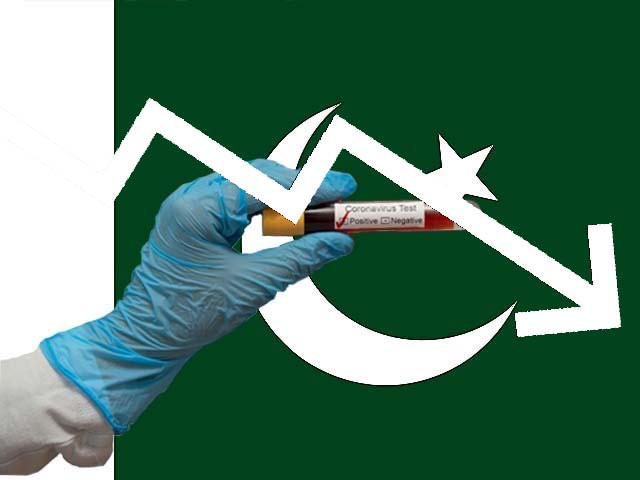Since the arrival of Covid-19, economic growth has turned sharply downwards, pushing economies into a global recession. The pandemic has played the role of a double edged knife i.e. if the lockdown is relaxed, the fear of an increase in the number of coronavirus cases rises, whereas if the lockdown is strictly imposed then economies tend to bear the repercussions. Economists across world have declared the pandemic to be a sequel to the Great Depression. Before March, the International Monetary Fund (IMF) projected positive per capita income growth for more than 160 countries for the year 2020. But, after six months of Covid-19 crippling economies across the world, 170 countries are currently experiencing negative per capita income growth.
Livelihood opportunities, especially for daily wage workers, have been squeezed. Not only have small and medium enterprises and traders been badly hit but the sudden closure of large industries, ports, airports and transport services has also jammed the wheel of economies across the globe. Additionally, this cut down in economic activity has further scaled down the consumption of petroleum products, which has resulted in a partial closure of refineries, thereby immensely impacting the petroleum trade. Although philanthropists and donor agencies are actively participating in the provision of essential food items and services to those in need, economic survival in less economically developed countries still remains a concern.
Pakistan was already suffering from a mild recession prior to the arrival of Covid-19. Therefore, despite massive criticism, the incumbent government had to ease the imposed lockdown at the end of May given the shrinking condition of the economy. At that time, the number of active coronavirus cases was on an exponential rise to such an extent that global health organisations were comparing Pakistan’s trend of increase in active cases with active cases in Italy and China. But contrary to expectations, the relaxation of the lockdown did not greatly increase the number of Covid-19 cases, and health experts are still unaware as to why this is. However, regardless of the success in dealing with the pandemic, the country has struggled to cope with the economic loss ushered in by the initial months of the pandemic. Pakistan’s economy for the first time in 68 years is projected to contract in the outgoing fiscal year with a negative growth rate of 0.38 percent, and the GDP is set to contract by 4% due to trade disruptions, decline in FDI and remittances, and fluxes in other sectors.
It is evident from the data that Pakistan’s economy has experienced prosperity and recession with no growth interval lasting more than five years. Since 2018, the growth rate was declining and the pandemic aggravated the situation even further. The informal sector that accommodated 27.3 million employees prior to the pandemic is now either suffering from an increase in unemployment or underemployment. In a nutshell, the pandemic made people in the country even more vulnerable to poverty, and those who were already vulnerable have been pushed below the poverty line.
In order to deal with the socio-economic implications of Covid-19, the government of Pakistan has collaborated with different donor agencies. The World Bank has approved a $200 million programme to help Pakistan improve access to quality healthcare, education and support economic opportunities for women to limit the impact of the pandemic. USAID and UNDP have also launched several programmes in different provinces of Pakistan to encourage revenue generating activities.
Even though the markets have now completely restored their operational status and are working in a restriction free environment, to expect an upward swing in growth is still unrealistic primarily because of two factors. Firstly, the weather that may have worked as a shield against the pandemic is beginning to change, and with this we may experience an uptick in coronavirus cases once again. The government’s claims that Pakistan is one of the highest Covid-19 testing countries in the world is still unreliable as a major chunk of the population cannot afford the cost of the test at Rs 4000 per person. Moreover, if we look at the household structure in Pakistan, a vast majority of households either have sole earners on which the entire family is financially dependent, or has minors working to make ends meet. Therefore, affordability of the Covid-19 test for an average poverty ridden household comprising of five to six individuals is an issue. Therefore, it can be stated that although the weather conditions might have prevented the spread of the virus, a great deal of active cases still go unreported.
Secondly, apart from the pandemic, the foreign debt policy of the government, unprecedented price hikes and a reduction in exports have also weakened the economy. Adding to the misery, the country is likely to face a gas shortage for a minimum of the next two years, thereby further exerting a negative impact on the staggering performance of Pakistan’s industries. In light of these circumstances, growth is unlikely to knock at the economy’s door anytime soon. Therefore, it is time for policy makers to be more vigilant in framing policies that can at least minimise the bandwidth of negative growth if not revert it back to a positive figure.



COMMENTS
Comments are moderated and generally will be posted if they are on-topic and not abusive.
For more information, please see our Comments FAQ